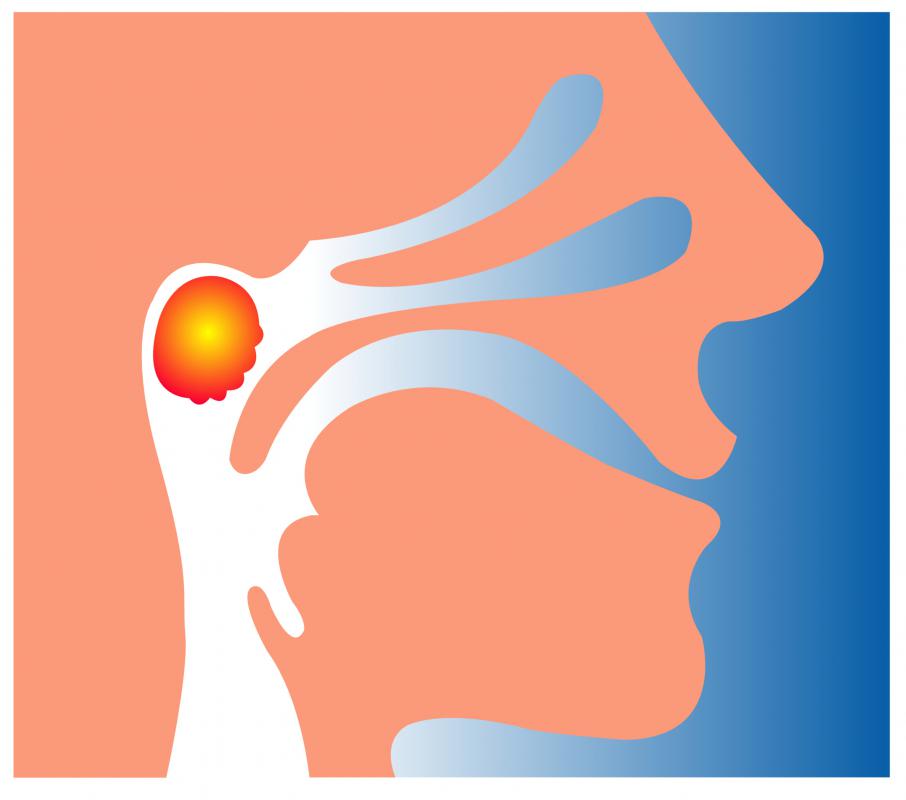At WiseGEEK, we're committed to delivering accurate, trustworthy information. Our expert-authored content is rigorously fact-checked and sourced from credible authorities. Discover how we uphold the highest standards in providing you with reliable knowledge.
What is Adenoid Cystic Carcinoma?
Adenoid cystic carcinoma is a rare form of cancer that usually affects the salivary glands in the mouth and throat. It typically manifests as a painless tumor in the mouth that can eventually spread to the lungs or other parts of the body. As the tumor grows, it can cause numbness in the tongue or face muscles, a sore throat, fatigue, and weakness. Doctors are unsure of the exact causes of adenoid cystic carcinoma, and it can appear in patients of any age. Surgical removal of tumors is usually effective, though chemotherapy or radiation treatment may be necessary in cases where the cancer has spread.
Salivary glands are located on and under the tongue, beneath the jaws, and throughout the throat. Adenoid cystic carcinoma tends to initially affect only one of these glands, though tumors in multiple locations are possible. In very rare cases, secretory glands located in eyes, lungs, breasts, or the female reproductive tract can also be afflicted with adenoid cystic carcinoma.

In their early stages, most adenoid cystic carcinoma tumors are painless. They appear as masses of discolored tissue on the tongue, roof of the mouth, or soft tissue in the throat. As the cancer begins to spread, it tends to affect the functioning of nearby nerve cells. The result is numbness in the throat, lower jaw, or tongue. An individual may also experience frequent sore throats, difficulty swallowing, and a constant dull pain in his or her neck and chest. It is common for a person to experience muscle weakness and fatigue as the cancer continues to spread.

A doctor typically makes a diagnosis of adenoid cystic carcinoma after noticing abnormal patches of skin. Specialists can conduct x-rays, computerized tomography scans, and magnetic resonance imaging tests to look for physical tumors. A biopsy of salivary gland tissue can confirm the presence and type of cancerous cells. Once a tumor has been detected, the team of specialists can determine the best course of treatment.

In most cases, surgery is necessary to fully remove a cancerous tumor. A skilled surgeon can cut away malignant tumors in the neck or mouth, leaving healthy tissue intact. A large tumor may force the surgeon to remove an entire gland to ensure that the cancer is fully eradicated. If adenoid cystic carcinoma is in its later stages, where it has spread to the lungs, bloodstream, or other parts of the body, chemotherapy or radiation treatment may be needed. Many patients are able to recover fully following treatment, and do not experience future incidences of adenoid cystic carcinoma.
AS FEATURED ON:
AS FEATURED ON:













Discuss this Article
Post your comments